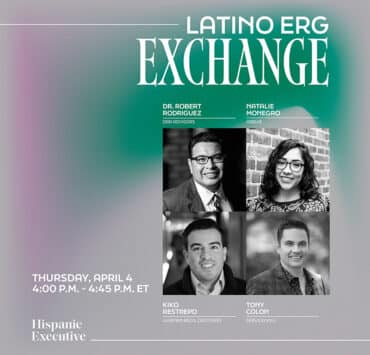|
Getting your Trinity Audio player ready...
|
Dora the Explorer is officially back on screen. The fictional Latina heroine is returning to TV, and Kathleen Herles, who originally voiced Dora, is returning as Dora’s mother.
It’s been over two decades since Herles first lent her vocals to Dora. “I remember sitting in front of my TV, watching the show for the first time. Hearing my voice was surreal. I immediately started to cry,” she says.
Herles was only seven years old when she was cast on the series. “I saw so many similarities between myself and Dora,” the New Yorker says. “I looked like her, and people asked if she was drawn after me—but she wasn’t. I related to her adventurous side, being bilingual, and her fearlessness to try new things.”
A Family Affair: Herles Takes on the Role of Dora’s Mom
DORA, an all-new original series with computer-generated animation, premieres on Paramount Plus on Friday, April 12. “I love that Dora is returning and being introduced to a new generation,” Herles says. While Herles plays Dora’s “Mami,” Diana Zermeño voices Dora in her debut role.
Herles is over the moon to come back to Dora’s story as Mami. “It’s a full circle moment for me. I’m honored to continue to be part of this amazing legacy,” she says. “I have a love for Dora that’s deeper than most—I was her! To play her mom, it’s extremely special.”
A Voice of a Generation: Herles Reflects on Dora’s Impact

Since the first airing of Dora, Herles had countless Latinas tell her that she was the only character that looked like them on TV. “Dora means so much to the Latino community,” she says. “For a child to recognize herself in the representation on TV through animation is huge. For Hispanic parents to see their cultures, values, and traditions represented on TV for kids is so special.
“Dora paved the way for us to have a presence and a voice to share who we are,” Herles emphasizes. “Representation is always important, and children especially need to see it so they know they matter, their voice matters—that their presence is important and needed.”
Like Herles, Mami is Peruvian, while Dora’s Papi’s parents are from Mexico and Cuba. “When [the cartoon] came out in the 2000s, Dora was considered ‘Pan-Latina.’ But now she’s multicultural, which represents a lot of US Latinos who are also multicultural,” Herles says.
The new series celebrates the titular character’s rich Latin American heritage, as she ventures through a rainforest with her trusty pal, Boots, who voice actor Asher Colton Spence voices.
Latino cultural elements embed themselves in the series through music, food, lore, and architecture—much of which the majority Latino writing staff influences. “It’s important that there’s knowledge and a true connection to the story they’re telling. Writing rooms should always be a diverse group,” Herles asserts.
“Latinas can be leaders in their lives, families, and in the workplace. Dora made us feel like we mattered. To feel that as a child and to grow with that mentality is powerful.”
—Kathleen Herles
More Than Just a Backpack: Dora’s Legacy of Adventure and Bilingualism
Dora is bilingual, and the show’s script has both Spanish and English dialogue. Fans have told Herles that Dora helped them pass their Spanish classes, and Latino immigrants have said the show helped them learn English. “When they immigrated to the States, they’d watch Dora to learn English. Which I think is so amazing,” she shares.
The eccentric character changed the perception of travel and adventure for Latinas, too. “As a kid from an immigrant family, sometimes you don’t think travel is possible. But it is. Someone told me Dora was their passport to the world growing up, and once they were in the place to travel, they felt like Dora the Explorer, investigating the world,” Herles says.
The voice actress relates to those immigrant children, although her Peruvian parents weren’t too happy when she started solo traveling. “I learned so much about myself on these trips. Travel can teach you a lot about other cultures, people, and yourself. It can change you to be a better and more well-rounded person.”
The Power of Latinas
Besides travel, Herles feels the most important message people can take from her show is that Dora showcased that Latinas can be main characters. “Latinas can be leaders in their lives, families, and in the workplace. Dora made us feel like we mattered. To feel that as a child and to grow with that mentality is powerful,” she says.

